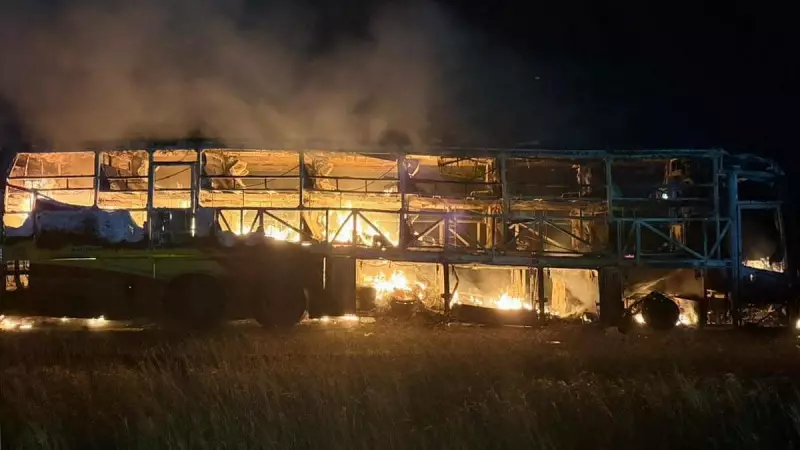
The grim reaper returned to Karnataka's treacherous highways this week, claiming ten more lives in a horrific collision that follows a painfully familiar script. A speeding truck collided head-on with a private bus in Haveri district, reducing vehicles to mangled metal and snuffing out dreams in an instant.
This isn't just another traffic statistic—it's a screaming indictment of our collective failure to learn from past tragedies. The same deadly factors that have characterized countless previous accidents were present yet again: excessive speed, dangerous overtaking, and what appears to be yet another vehicle operating without proper fitness certification.
The Anatomy of a Preventable Disaster
Witness accounts and preliminary investigations paint a chilling picture of negligence. The truck, reportedly traveling at dangerous speeds, attempted an ill-advised overtaking maneuver that put it directly in the path of the oncoming bus. The resulting impact was catastrophic, leaving emergency responders to confront a scene of unimaginable horror.
What makes this tragedy particularly galling is its predictability. Karnataka's roads have become killing fields, with similar accidents occurring with depressing regularity. Each time, there are promises of action, temporary crackdowns, and then—business as usual until the next catastrophe.
Systemic Failures That Cost Lives
The problems run deeper than individual driver error:
- Lax enforcement of speed limits and traffic regulations
- Inadequate vehicle fitness checks that allow potentially dangerous vehicles on the road
- Poor road design and maintenance in accident-prone sections
- Insufficient emergency response infrastructure in rural areas
These systemic weaknesses create an environment where tragedies like the Haveri collision aren't just possible—they're inevitable.
Learning the Wrong Lessons
After every major accident, there's a familiar cycle: public outrage, political promises, temporary increases in police presence, and then gradual complacency. The fundamental issues remain unaddressed, waiting to claim more victims.
When will we stop treating road safety as a reactive measure and start building proactive, permanent solutions? The technology exists, the knowledge is available, but the political will and administrative consistency remain elusive.
A Call for Genuine Reform
Meaningful change requires more than temporary measures. We need:
- Comprehensive vehicle fitness certification systems with zero tolerance for violations
- Intelligent traffic management systems on dangerous highway stretches
- Strict accountability for enforcement agencies and transport departments
- Investment in road infrastructure based on safety audits rather than just convenience
The ten lives lost in Haveri deserve more than becoming another forgotten statistic. They deserve to be the catalyst for real, lasting change that prevents future families from experiencing similar grief.
Until we break this deadly cycle of tragedy and temporary response, death will continue to ride our highways, claiming victims in entirely preventable circumstances.





